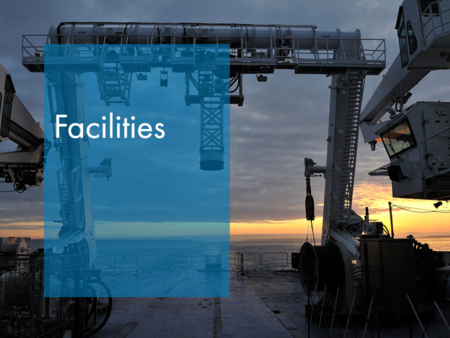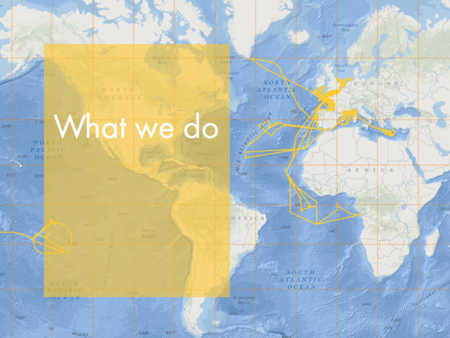Control of noise-related risks for marine mammals
According to the United Nations Convention on the Law of the Sea (UNCLOS, 1982), man-made sources of sound are considered sources of pollution. In light of this, several states already regulate the use of sound-producing equipment at sea. Aware of environmental constraints and conscious of the sensitive nature of certain sound emissions, IFREMER has defined a protection protocol to limit the risk of their impacting marine mammals. These regulations are to be taken into account during the processing of a request to authorize works at sea.
In light of works involving computer models and of measurements made over a period of several years, only seismic sources are considered to be a sound risk for marine mammals. Other sound-producing systems (in particular echo sounders) are considered to have a negligible impact and as such their use is not subject to any particular precautions.
As a result, each research cruise that deploys seismic sources (with a total volume > 500 in3) from a vessel of the oceanographic fleet or from another ship is, today, systematically analysed for sound-related risks and subject to suitable precautionary measures that must be applied at sea. These measures are defined and detailed in a special protocol drafted by IFREMER.
In order to facilitate the planning of cruises (seasons) and the achievement of sound risk studies and environmental impact studies that may be demanded by certain states, specific information concerning the mission must be provided in the form created for the purpose (download it below). The form enables the requester to submit this information when submitting the cruise request dossier via the Cruise Management System (SGC).
The mitigation protocol applied aboard ship by a team of professional and independent MMOs (Marine Mammals Observers) and/or PAM operators (Passive Acoustic Monitoring) working for IFREMER. Depending on the geographical area and the seasons, such teams comprise between three and six people. They are to be included in the ship’s complement count (crew and scientists). Marine mammals observers and PAM operators have the authority to halt firing operations.




